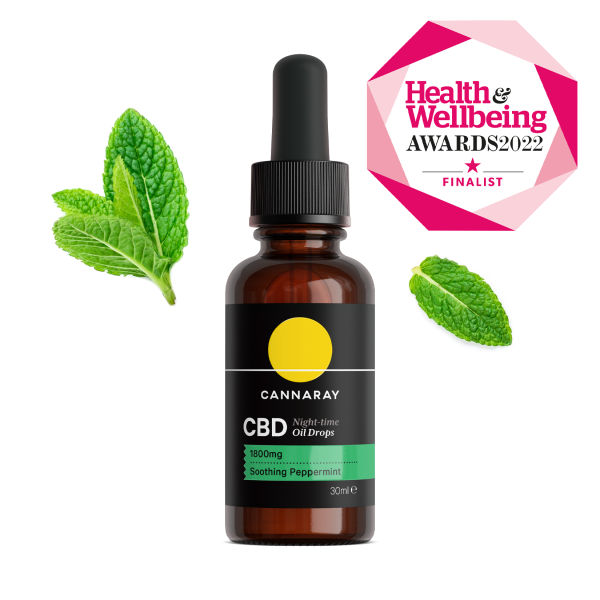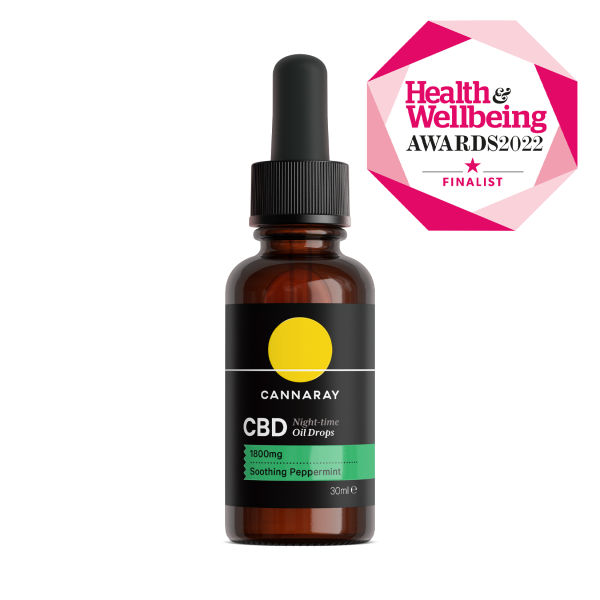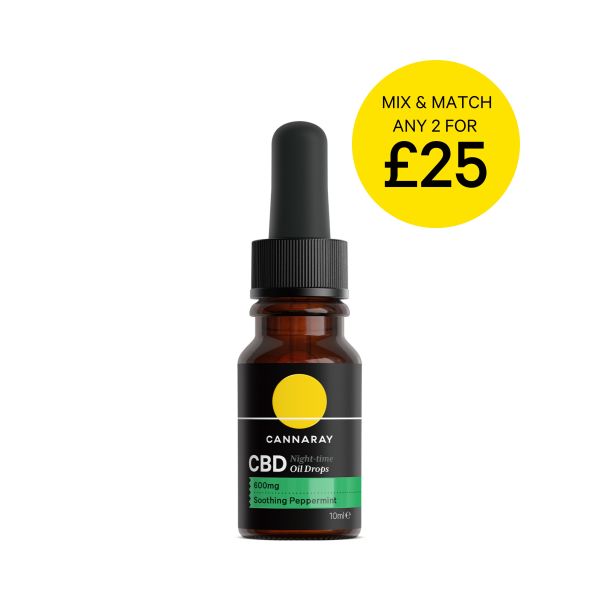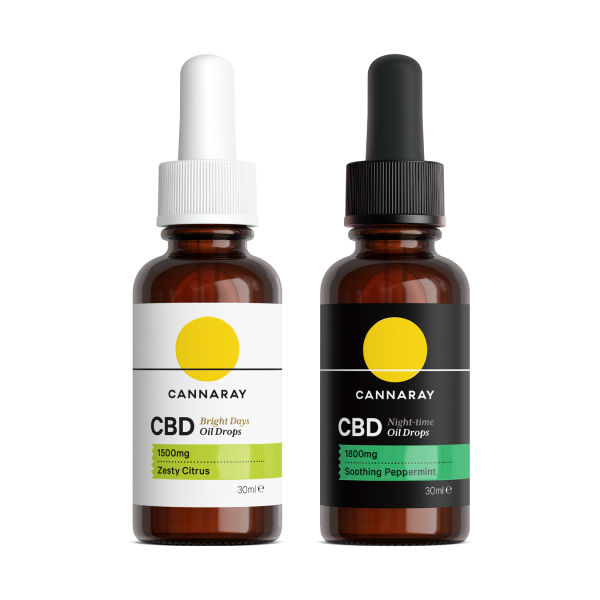10 Menopause Symptoms & How to Manage Them
In this article, we reveal how you can ease menopause symptoms by:
- Upping your vitamin D intake
- Taking zinc to ease brain fog
- Getting plenty of vitamin C
- Tracking your trigger foods
- Drinking plenty of water
- Preparing for night sweats
- Engaging in regular exercise
- Cooling down during hot flushes
- Finding your calm
- Improving your sleep routine
- Talking to your GP

Taglines
Words
Zara Kenyon
Menopause is a fact of life – a natural and normal transition – but it's still not talked about enough, leaving many unprepared or nervous for what's ahead. The fact is, too few of us are being open and honest about menopause symptoms and how they affect daily life. So, we're here to open up the conversation and reveal the signs you should be looking for.
In this article, we don't just talk about the key symptoms of menopause – we also explore ways you can manage the changes as they come, from lack of sleep to hot flushes to memory loss. Here's everything you need to know...

What is Menopause?
Menopause is the point in time that marks the end of your menstrual cycle. It's diagnosed 12 months after your last menstrual period, and happens as oestrogen and progesterone levels go down. However, before you reach the 12-month mark, you may experience a host of menopause symptoms, as your body strives to adjust to the hormonal changes you're experiencing.
When Does the Menopause Start?
This will be different for everyone. However, the NHS states that menopause usually occurs between the ages of 45 and 55, as your oestrogen hormone levels start to decline. In the UK, the average age to start is 51, but around one in 100 women experience menopausal symptoms before they turn 40.

What are the key symptoms of menopause?
There are many signs of menopause that you may start to notice, but some are more common than others. (We’ve all heard about the hot flushes and brain fog, right?) Here are the top 14 to be aware of:
- Night sweats
- Sleep disturbances
- Loss of concentration
- Vaginal dryness
- Mood swings
- Itchy and/or dry skin
- Hot flushes
- Menstrual cycle changes
- Headaches
- Reduced sex drive
- Breast tenderness
- Hair loss
- Memory loss
- Urinary incontinence
How to Manage Menopause Symptoms

1. Up your Vitamin D Intake
Because of the hormonal changes your body goes through during menopause, your bones may become weaker, which can sometimes lead to osteoporosis. However, according to the NHS, increasing your vitamin D intake can contribute to the maintenance of healthy bones. Sunshine will help, but when the weather forecast lets you down, you can also try certain foods and supplements.
You'll find this essential vitamin in a number of healthy diet staples, such as oily fish, red meat and egg yolks, as well as the easy-to-take Bright Days CBD Capsules. In fact, we’ve infused each serving (two capsules per day) with 500% of your recommended daily vitamin D3 intake, alongside other healthy heroes, such as zinc and vitamin C.
Shop CBD Capsules
Discover Cannaray CBD capsules fortified with Vitamin D3, C & Zinc for immunity support.

2. Take Zinc to Ease Brain Fog
Zinc (which is found in whole grains, meat and nuts, as well as our CBD Capsules may also help to support you through one of the key menopause symptoms: ‘mental fog'. A decrease in concentration is common as your body changes, but the mind-kind power mineral is said to contribute to normal cognitive function. If you're looking for extra ways to keep your mind sharp, you can also try taking up a new hobby or learning a new skill. The goal is to stimulate your mind with fresh and interesting ideas that keep the ‘fog' at bay.

3. Get plenty of vitamin C
Fatigue is a common symptom of the menopause, as your body reacts and adjusts to the changes it’s going through. So, boost your energy levels with plenty of vitamin C, which contributes to the reduction in tiredness and fatigue. Alongside vitamin D3 and zinc, you’ll find 225% of your daily vitamin C dosage in a daily serving (2 capsules) of the Bright Days CBD Capsules, giving you the support you need to maintain level up your energy from day to day.
Shop CBD Gummies
Whether you're looking for regular strength or high strength CBD gummies, we've got options to suit everyone. Try our delicious vegan CBD gummies solo, or mix and match with your favourite CBD oils or CBD Capsules.

4. Track Your Trigger Foods
Keep track of your trigger foods; the things that tend to lead to hot flushes. One of the easiest ways to do this is by creating a food diary, complete with times you eat each meal or snack. Over time, you may start to see patterns with certain foods and menopause symptoms. Common triggers tend to be caffeine, alcohol and spicy foods, so don’t be surprised if these turn out to be your key culprits.
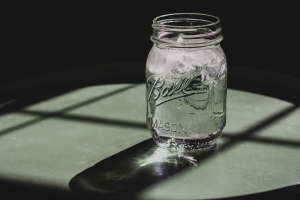
5. Drink Plenty of Water
Fill up a bottle with cold water each day and keep it with you in case of hot flushes. It won’t fend them off completely, but it may help to cool you down and make you feel more comfortable. It can also help to stay hydrated if you find that sudden headaches are one of your menopause symptoms.

6. Prepare for Night Sweats
If you’re experiencing night sweats – even on the coldest nights – switch up your bedtime routine with lighter bedsheets and pyjamas. Opt for breathable fabrics, such as microfibre (which absorbs moisture) or percale (a type of cotton that feels cool to the touch). You should also avoid crowding the bed with too many cushions and throws. Plus, if it’s not too cold outside, it can help to keep a window open while you sleep.
Shop Night-Time CBD Oil
CBD oil with added hemp seed oil and fresh peppermint; our Night-Time CBD oils are the dreamiest drops around.

7. Engage in Regular Exercise
While bone strength lessens as you go through menopause, Healthline reveals that strength training can help you build your body up and improve muscle condition. Invest in dumbbells for at-home workouts or head to the weight machines and free weights sections in the gym. Opt for weights that are heavy enough to work your muscles without being too taxing. What you don’t want to do is overwork yourself, so consider seeking advice from a personal trainer to find a routine that works for you. Bonus: that workout may help you sleep better, too.

8. Cool down during hot flushes
Hot flushes can strike at any moment, so have a plan in place for when they do. First up: a small hand fan is a must for taking with you on the go. Choose a small one that fits in your bag. It's also a good idea to dress in light layers, so you can remove them easily if you need to. Reach for lightweight, breathable fabrics such as cotton or linen. And, lastly, avoid stress. We know – that one is easier said than done. However, stress can be a key trigger for hot flushes, so finding ways to keep calm and collected is a must. Which brings us to the next point...

9. Find your calm
Mood changes are common when you're going through menopause, so don't be surprised if you feel a little (or a lot) more irritable than usual. It's important to be kind to yourself and protect your mental health during this time. That's why we recommend trying new hobbies or activities to improve your mood, whether that's painting, gardening, swimming or volunteering to help others in need. Anything that lifts your spirits is worth making time for, so make mood-boosting activities a priority in your weekly routine. If you're looking for ideas, we have plenty in our How to Stop Stressing guide, complete with tips from our brand ambassador Claudia Winkleman.

10. Improve your sleep routine
Sleep during menopause can be tricky. While some find their sleep habits unchanged, others report waking through the night or rising too early in the morning. The night sweats don't help; they can wake you up and leave you too uncomfortable to drift back off, so you end up feeling extra tired throughout the day. To help you improve your sleep routine as your body goes through changes, we've created a series of nighttime guides. Maintaining rituals is key to keeping your body clock in check, so follow these tips for a restful night...
- If you're already struggling to sleep, read: Why Can't I Sleep? 5 Things Keeping You Awake
- If your sleep routine is all over the place, read: What is Sleep Hygiene? 8 Healthy Habits to Try
- If you want quick, easy, natural sleep solutions, read: 8 Natural Home Remedies for Sleep to Try Tonight
Talk to Your GP
One last thing... if you're finding any of your menopause signs are particularly troublesome, you may find it helpful to talk to your GP. Whether it's hot flushes, insomnia or bone weakness you're struggling with, they'll be able to advise on the best course of treatment for your symptoms.
Up next: Looking for more wellness wisdom? Discover five ways to support your immune system, featuring CBD.














